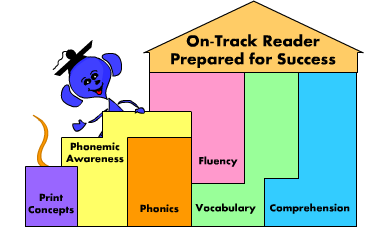- Teaching Resources
- WORD LISTS & LESSONS
- Reading Programs
- Grade Level Lists
- English/ Language Arts
- Figurative Language
- Grammar
- Spelling
- Vocabulary
- Literature
- Math
- Science
- Social Studies
- EDUCATIONAL TOPICS
- PRODUCT INFO
- General Info
- About WritingCity
- App
- Awards & Recognition
- Build Literacy Skills
- CODiE Award Finalist
- Conferences and Conventions
- Custom Sentences and Definitions
- Efficacy Study: Help Students Build Reading Comprehension
- Google Education App
- Google Single Sign-On
- Handwriting Worksheets
- Manage Student Data with Clever
- McREL Efficacy Study
- Online Learning Resources
- Parent Welcome Letters
- Personal Student Lists
- Phonics Games Build Literacy Skills
- Printables
- Review Lists
- SpellingCity/ NComputing
- Student Writing Practice
- Test Prep
- VocabularySpellingCity Acquires WriteSteps
- Webinars: Tim Rasinski
- White Paper on Effective Vocabulary Instruction
- Words Their Way White Paper
- Testimonials
- General Info
- TRAINING & HELP
- FUNDING
- WORD LISTS & LESSONS
Reading Comprehension
Vocabulary is responsible for 70% of reading comprehension problems in elementary schools. Although the research is clear as to what most students need in order to build vocabulary, many schools ignore the research and reading scores suffer. With the proper techniques, reading comprehension can improve by 20%, and the best news is, it’s extremely easy to implement these techniques (and they take up no additional time in the school day!)
Here are the concrete steps for a school or district to build a system for improving reading comprehension in a research-proven way: By revisiting the concepts and vocabulary over four week periods:
- Train the teachers and the students. Teachers should understand the impact of paying some attention to vocabulary retention. The training should extend to the students so they too understand that the point of the vocabulary study is long-term retention, not just getting through each week’s cycle. Spaced practice, in which the students encounter these words over multiple weeks in different contexts, greatly increases the probability of retention.
- Use a multimedia game-like system so that the students are truly engaged. It’s important that they can hear the words and see them used in context. Play with them. Figure out what they mean. Write with them. VocabularySpellingCity has been designed specifically to provide this spaced multimodal practice with over 35 different learning activities and games covering from writing sentences for each word to breaking each word down phonetically, from vocabulary to spelling. This variety is important if the students are going to work daily on the system.
- Use VocabularySpellingCity’s system with reports for teachers, for parents, and for administrators.
- Assign activities and lists, rather than simply letting students play.
- Look at the recorded data and hold students accountable for both their level of effort and results.
- Leverage students’ reading by asking them to harvest 10 interesting words and create a list on VocabularySpellingCity. Then you can share the list with other students, and the students can teach the words to each other
- Measure your progress. As you implement a program for increased vocabulary retention, establish a metric for measuring it either directly or through improved comprehension. One of the trends that needs to be refined in schools is to use testing to encourage and guide success. The point should be a formative assessment that’s useful, not high-stakes testing that is so brutal and apparently ineffective.
Below you will find additional resources and research about vocabulary and reading comprehension, or you can simply get started now with VocabularySpellingCity!
In The Importance of Automaticity and Fluency For Efficient Reading Comprehension, Pamela E. Hook and Sandra D. Jones analyze the reading process as organized along two separate, but highly interrelated, areas – word identification and comprehension. Their article maintains that even the slightest glitch in word comprehension and fluency can create a cognitive overload that significantly reduces reading comprehension. The article then outlines the link between phonemic awareness, phonics, and orthographic reading. So strong automaticity, built in large part through spelling practice, is required for adequate reading comprehension.
The Reading Skills Pyramid based on the What Works? research illustrates how a successful reader is the culmination of building skills in five major areas: phonemic awareness, phonics, reading comprehension, vocabulary, and fluency. The Reading Skills Pyramid visually depicts the patterns of concept acquisition that children follow in becoming successful readers up through third grade. We recommend a high level of parent involvement in this process by providing high-quality educational materials, establishing a pattern of daily reading, creating a language-rich environment, and discussing your child’s progress with teachers and following up on their recommendations. While most children follow the same sequence of acquiring literacy skills, they do so at their own pace. All children are different. If you have questions or concerns about your child’s progress in reading, contact his or her teacher.


 Account
Account
 Search
Search
 Help
Help